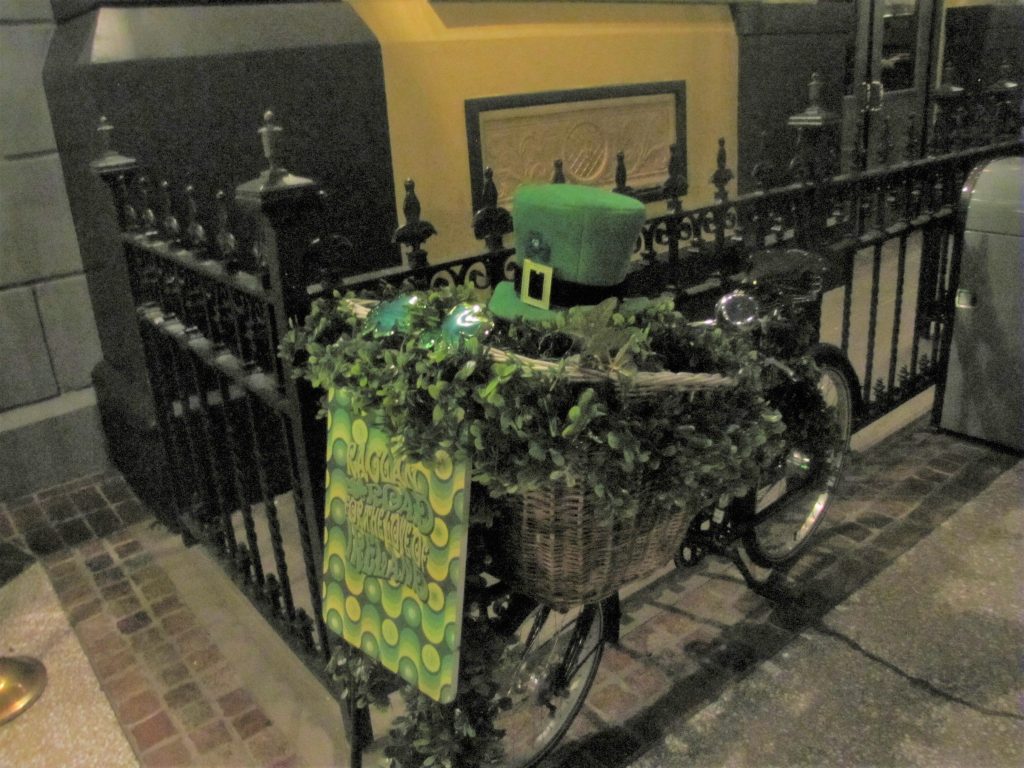(Disclaimer: The opinions expressed in this column of those of the author and do not necessarily reflect those of The Augusta Press.)
Kiss me… I’m Irish … and possibly Jewish as well.
I have been told by members of my non-Jewish-faith household that I may have a direct connection to Ashkenazi Jews. I claim that lineage in addition to Irish and Scots-Irish genealogical research that shows I am Irish as well.
Those two different lines have connected in interesting ways, and ways that remind me how much more we all have in common than we sometimes think. Food, for example, can be an important “common denominator.”
[adrotate banner=”51″]
A few years ago, I read an article that said corned beef I had been eating each year was actually Jewish in origin, not Irish. Recently, I found another article on Smithsonian.com that indicated this as well. According to https://www.smithsonianmag.com/arts-culture/is-corned-beef-really-irish-2839144/, “…Yet, the corned beef the Irish immigrants ate was much different than that produced in Ireland 200 years prior. The Irish immigrants almost solely bought their meat from kosher butchers.”
The article continued, “And what we think of today as Irish corned beef is actually Jewish corned beef thrown into a pot with cabbage and potatoes. The Jewish population in New York City at the time were relatively new immigrants from Eastern and Central Europe.”
Recently, through an article in “The Augusta Press,” I learned about a tradition I wasn’t aware of. For nearly a decade, Adas Yeshurun Synagogue on Johns Road has had a corned beef sandwich meal fundraiser. This year’s happened a few days before St. Patrick’s Day. It featured a New York kosher corned beef sandwich on rye, chips, pickle, soft drink and black and white cookie.
I ordered two sandwich plates for my mother and me and picked them up at the synagogue. The corned beef was not fatty at all and was well-seasoned. To be honest, it was some of the best corned beef I have ever had. The bread and the pickle were fresh.
The New York kosher corned beef is very close to what the Irish immigrants in New York City used to celebrate St. Patrick’s Day.
According to that same Smithsonian article, the Irish in Ireland do not actually eat corned beef on St. Patrick’s Day. I have also read it is a more solemn, holy affair to the Irish than the drink-fest and parades it is in the United States.
My late father, Ronnie Baxley, Sr., had Pick’s disease, a disease that shrinks the frontal lobe and causes fatal dementia. One of his doctors at the V.A. in Augusta told my mother and me that that disease was passed on genetically through Ashkenazi Jews. They are one of two major ancestral groups of Jews whose ancestors lived in Central and Eastern Europe. The genes for Pick’s disease have to be passed on from both parents.
My family history research did show a Jewish connection. Genealogical research by my late grandmother Hattie Baxley showed a possible Jewish connection through the Zizette part of the Baxley family.
[adrotate banner=”15″]
The Baxley name itself has both connections in England and Ireland. My late grandmother Hattie’s maiden name was Rowell, which has connections to England and Scotland. My mother’s father’s name, Dickerson, has connections to England and Ireland. My grandmother’s maiden name on my mother’s side is Sheely, and any name that starts with Shee indicates a connection to Irish families. So I have plenty of evidence for my heritage being Irish, Scots-Irish, Scottish, and some Jewish connections in my family.
Another dish common the cuisine of both the British Isles and Jewish culture is fish and chips.
Jews in London were among the first to serve fish and chips, according to “The Irish Times.”
I have had the dish in British Isle, Irish pubs in Columbia, S.C., North Carolina, and even in Kansas, but in each of those places, it was always associated with the Irish, not its Jewish origins. And I did not know about fish and chip’s Jewish origins until recent years.
Even in the Disney Springs version of an Irish restaurant, I have had fish and chips as well.

Dishes such as shepherd’s pie (a lamb and vegetable filling topped with mashed potatoes served as a baked casserole) and bangers and mash (sausage and mashed potatoes) may be closer to being traditionally Irish than fish and chips.
I think it is nice when traditions from different cultures show us that we are more alike than we think. To celebrate our similarities, I sat down to a lunch of a corned beef sandwich from Adas Yeshurun Synagogue for an early St. Patrick’s Day celebration and might have a supper of fish and chips and/or shepherd’s pie from a pub on St. Patrick’s Day itself.
In years past, the Cracker Barrel chain, in addition to regional British/Irish pubs, have served corned beef and cabbage on Saint Patrick’s Day too. What a couple of huge, delicious meals those are… to combine the Irish, Yiddish and Southern vernacular… och, vey, ya’ll!
Ron Baxley Jr. is a correspondent for The Augusta Press.











